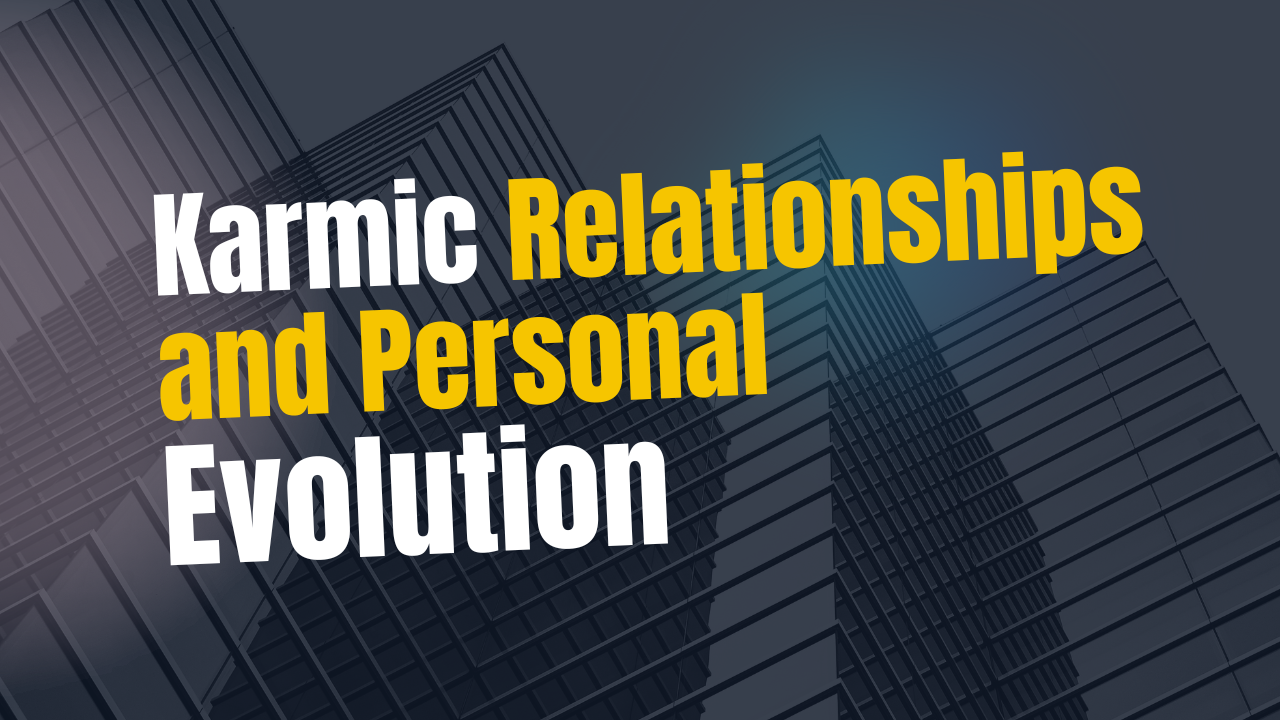Life is often compared to a journey, a winding road filled with lessons, opportunities, and relationships that shape us into who we are. Among the most profound connections we experience are karmic relationships—bonds that go beyond the surface, compelling us to confront our deepest fears, heal past wounds, and grow in ways we never imagined.
These relationships, often intense and transformative, promote personal evolution. This article explores the nature of karmic relationships, their challenges, and how we can use them as stepping stones for growth.
What Are Karmic Relationships?
Karmic relationships are deeply rooted connections thought to stem from past-life interactions. The word “karma” originates from Sanskrit, meaning “action” or “deed,” and refers to the law of cause and effect. In the context of relationships, karma suggests that unresolved emotions, lessons, or debts from past lives manifest in the present to bring closure or growth.
Unlike ordinary relationships, karmic ones feel uniquely intense. They may appear fated, with an inexplicable pull towards another person. However, these relationships are not always harmonious or easy. They are designed to teach us lessons, often through challenges that push us to evolve emotionally, spiritually, and mentally.
Signs of a Karmic Relationship
- Immediate Connection: You feel an instant, magnetic attraction to the person.
- Emotional Intensity: The relationship is emotionally charged, ranging from overwhelming passion to deep conflict.
- Repetitive Patterns: Similar issues or conflicts keep resurfacing, often mirroring unresolved personal struggles.
- Short-lived yet Impactful: Many karmic relationships are brief but leave a lasting impact on your life.
- Growth-Centric: Despite the pain or challenges, the relationship teaches important life lessons.
Challenges of Karmic Relationships
Karmic relationships are not meant to be easy. They test our resilience, self-awareness, and capacity for love and forgiveness. Here are some common challenges:
Emotional Turbulence
The intensity of karmic relationships can lead to emotional highs and lows. One moment, you may feel euphoric and deeply connected; the next, you may experience profound frustration or heartbreak. This emotional rollercoaster forces you to examine your triggers and unresolved issues.
Codependency
Karmic relationships often create a sense of dependency, where one or both partners feel incomplete without the other. This dependency can lead to unhealthy patterns of behavior, highlighting the need for self-reliance and self-love.
Miscommunication
Because karmic relationships often involve lessons in understanding and empathy, miscommunication can be a recurring issue. Both partners may struggle to see things from each other’s perspective, resulting in misunderstandings and conflict.
Painful Endings
Many karmic relationships are temporary. Their purpose is to teach a lesson, and once that lesson is learned, the relationship may dissolve. This can be heartbreaking, but it’s often a necessary step in personal evolution.
Turning Challenges Into Growth
The challenges of karmic relationships, while difficult, are not without purpose. They hold immense potential for transformation and personal growth. Here’s how you can turn these challenges into opportunities for evolution:
Embrace Self-Awareness
Karmic relationships act as mirrors, reflecting your deepest fears, insecurities, and unhealed wounds. Instead of resisting these reflections, use them as opportunities for self-discovery. Ask yourself:
- What is this relationship teaching me about myself?
- Are there patterns in my behavior that I need to address?
Self-awareness is the first step toward growth, as it helps you identify areas in your life that require healing and improvement.
Cultivate Emotional Resilience
The emotional ups and downs of a karmic relationship can be exhausting, but they also build resilience. Learn to navigate your emotions without being overwhelmed by them. Practices like mindfulness, meditation, and journaling can help you process your feelings in a healthy way.
Set Healthy Boundaries
While karmic relationships often feel consuming, it’s essential to establish and maintain healthy boundaries. This includes recognizing your own needs, communicating them effectively, and ensuring that the relationship does not drain your emotional or mental energy.
Practice Forgiveness
Forgiveness is a cornerstone of personal evolution. This includes forgiving your partner for their mistakes and, more importantly, forgiving yourself. Remember, karmic relationships are not about blame but about learning and growth.
Let Go When Necessary
One of the hardest lessons in a karmic relationship is knowing when to let go. Holding onto a relationship that has served its purpose can hinder your growth. Trust that letting go creates space for new opportunities and relationships aligned with your evolved self.
Karmic Relationships and Spiritual Evolution
Karmic relationships are not just about personal growth—they are deeply tied to spiritual evolution. They challenge you to look beyond the superficial and connect with your higher self. Here are some ways in which karmic relationships contribute to spiritual growth:
Healing Past Wounds
Many karmic relationships bring unresolved past-life issues to the surface. By addressing these issues, you break free from karmic cycles, paving the way for healing and spiritual liberation.
Expanding Consciousness
The lessons learned from karmic relationships expand your awareness of yourself and the universe. They teach you that life is not a series of random events but a journey of interconnected experiences with deeper meaning.
Aligning with Your Life Purpose
Karmic relationships often steer you toward your life’s purpose. The challenges and lessons push you to discover your passions, values, and the contributions you’re meant to make to the world.
Distinguishing Karmic Relationships from Other Connections
It’s important to distinguish karmic relationships from other types of connections, such as soulmate relationships and twin flames. While they may share some similarities, each serves a unique purpose:
- Soulmate Relationships: These are harmonious and nurturing relationships that feel comforting and familiar. Soulmates help you grow but in a supportive and loving way.
- Twin Flame Relationships: Often described as two halves of the same soul, twin flames challenge you to confront your shadows but also inspire profound spiritual growth.
- Karmic Relationships: These are more about lessons than comfort. They push you out of your comfort zone, forcing you to grow through challenges and discomfort.
Understanding these differences can help you navigate your relationships with clarity and purpose.
Final Verdict
Karmic relationships, while challenging, are profound opportunities for personal and spiritual evolution. They are the universe’s way of helping us grow by confronting unresolved issues, breaking toxic patterns, and teaching us the value of self-love, resilience, and forgiveness. While these relationships may not last forever, their impact is enduring, leaving us wiser, stronger, and more aligned with our true selves.
By embracing the lessons of karmic relationships and viewing challenges as stepping stones, we can transform pain into purpose, fostering growth that elevates every aspect of our lives. As we move forward on our journey, we learn that every connection, no matter how difficult, is a gift-a reminder that life’s greatest challenges often lead to its most profound rewards.

Sam is a relationship expert and the lead content creator at BondingBlueprint, where he shares his insights and advice on building stronger, healthier connections. With a passion for helping individuals and couples navigate the complexities of modern relationships, Sam combines practical strategies with a deep understanding of emotional intelligence. His approachable writing style and evidence-based tips have helped countless people strengthen their marriages and relationships.

